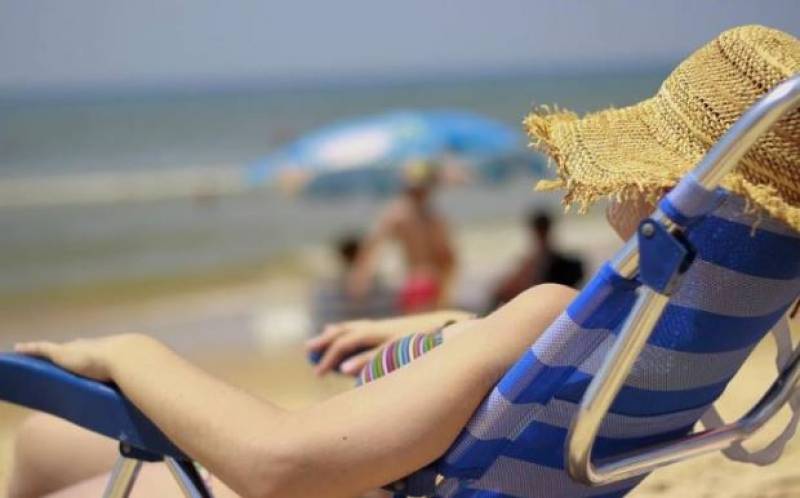- Region
- Águilas
- Alhama de Murcia
- Jumilla
- Lorca
- Los Alcázares
- Mazarrón
- San Javier
-
ALL AREAS & TOWNS
- AREAS
- SOUTH WEST
- MAR MENOR
- MURCIA CITY & CENTRAL
- NORTH & NORTH WEST
- TOWNS
- Abanilla
- Abarán
- Aguilas
- Alamillo
- Alcantarilla
- Aledo
- Alhama de Murcia
- Archena
- Balsicas
- Blanca
- Bolnuevo
- Bullas
- Cañadas del Romero
- Cabo de Palos
- Calasparra
- Camping Bolnuevo
- Campo De Ricote
- Camposol
- Canada De La Lena
- Caravaca de la Cruz
- Cartagena
- Cehegin
- Ceuti
- Cieza
- Condado de Alhama
- Corvera
- Costa Cálida
- Cuevas De Almanzora
- Cuevas de Reyllo
- El Carmoli
- El Mojon
- El Molino (Puerto Lumbreras)
- El Pareton / Cantareros
- El Raso
- El Valle Golf Resort
- Fortuna
- Fuente Alamo
- Hacienda del Alamo Golf Resort
- Hacienda Riquelme Golf Resort
- Isla Plana
- Islas Menores & Mar de Cristal
- Jumilla
- La Azohia
- La Charca
- La Manga Club
- La Manga del Mar Menor
- La Pinilla
- La Puebla
- La Torre
- La Torre Golf Resort
- La Unión
- Las Palas
- Las Ramblas
- Las Ramblas Golf
- Las Torres de Cotillas
- Leiva
- Librilla
- Lo Pagan
- Lo Santiago
- Lorca
- Lorquí
- Los Alcázares
- Los Balcones
- Los Belones
- Los Canovas
- Los Nietos
- Los Perez (Tallante)
- Los Urrutias
- Los Ventorrillos
- Mar De Cristal
- Mar Menor
- Mar Menor Golf Resort
- Mazarrón
- Mazarrón Country Club
- Molina de Segura
- Moratalla
- Mula
- Murcia City
- Murcia Property
- Pareton
- Peraleja Golf Resort
- Perin
- Pilar de la Horadada
- Pinar de Campoverde
- Pinoso
- Playa Honda
- Playa Honda / Playa Paraíso
- Pliego
- Portmán
- Pozo Estrecho
- Puerto de Mazarrón
- Puerto Lumbreras
- Puntas De Calnegre
- Region of Murcia
- Ricote
- Roda Golf Resort
- Roldan
- Roldan and Lo Ferro
- San Javier
- San Pedro del Pinatar
- Santiago de la Ribera
- Sierra Espuña
- Sucina
- Tallante
- Terrazas de la Torre Golf Resort
- Torre Pacheco
- Totana
- What's On Weekly Bulletin
- Yecla


- EDITIONS:
 Spanish News Today
Spanish News Today
 Alicante Today
Alicante Today
 Andalucia Today
Andalucia Today
Avoid holiday fines: Complete guide to the 7 tourist rules in Spain you have to know this summer
The dos and don’ts for Brits travelling to Spain that could save you thousands this summer

The holiday season is almost upon us and, as always, Spain is expected to be one of the most sought-after destinations for British tourists again this summer. But many regions are cracking down on so-called drunken tourism and have implemented new rules for summer 2023 that could catch holidaymakers out – and cost them dearly.
In Spain, not knowing the law is no excuse as far as the police are concerned and tourists can and will be fined if they’re caught flouting the rules. Regulations for tourists differ from region to region, so we’ve put together a list of dos and definitely do nots to ensure your summer holiday goes off without a hitch.
1. Double check before checking in
Brexit has also had an impact on how we travel, so it’s important to remember that British passports must have been issued within 10 years to guarantee entry to Spain, and they must have at least three months validity remaining from the date you leave.
UK holidaymakers won’t need a visa once they aren’t planning to stay longer than 90 days in a 180-day period, but your passport will be stamped when you enter and leave Spain. Also, from November this year, Britons aged between 18 and 70 will likely have to apply for an ETIAS (European Travel Information Authorisation System) visa waiver before they travel.
Visitors from the UK no longer have to show any Covid documentation, but anyone travelling to Spain from China will need to be fully vaccinated or have a negative test.
2. Money talks
Many Britons aren’t aware of this long-standing EU regulation, but passengers arriving in Spain from the UK can be asked for proof that they have enough money to fund their trip. If asked, you should also be able to produce proof of where you’re staying and a return flight home.
In Spain, the authorities ask that British visitors have at least 100 euros for each day of their trip.
3. Boozy Brits

Since last year, many popular all-inclusive resorts in the likes of Magaluf, Mallorca and Ibiza have restrictions on the amount of drink that can be consumed. Visitors to certain hotels will be restricted to six free alcoholic beverages per day – three at lunch and three at dinner. Anything extra they’ll have to pay for.
Many areas, particularly the islands, have also banned organised pub crawls, happy hours and booze cruises, so it’s best to check the local regulations before you travel.
In Madrid, the Balearic Islands and the Canary Islands, drinking alcohol in public places, except licensed bars and restaurants, is strictly forbidden and is punishable with a fine of up to 3,000 euros.
Large illegal parties are also a growing trend in holiday hotspots like Ibiza and anyone caught attending a gathering in an unlicensed premises can face a fine of up to 300,000 euros.
4. Stag and hen dos
The Costa del Sol is one of the most iconic destinations for pre-marital celebrations, but the government is taking a no-nonsense approach towards rowdy stag and hen parties. Bachelors and bachelorettes in Malaga have been warned they’ll be fined up to 750 euros if they’re caught on the street with inflatables in the shape of genitals, although revellers will get a warning from police first to ditch the accessories.
 The new law stipulates that “it is forbidden to walk or remain in the streets or in public spaces without clothes or only in underwear, with clothes or accessories that represent human genitals or with dolls or elements of a sexual nature.”
The new law stipulates that “it is forbidden to walk or remain in the streets or in public spaces without clothes or only in underwear, with clothes or accessories that represent human genitals or with dolls or elements of a sexual nature.”5. Cover up
Malaga isn’t the only place that has imposed certain dress codes. In Barcelona and Mallorca, bikinis are strictly for the seaside, and women wearing swimsuits and men going topless on the streets could be fined 300 euros.
In some areas even walking from your car to the beach not fully dressed is banned, so it’s best to stay covered up until you hit the sand.
Also in Mallorca, several restaurants in Palma have banned football strips, swimsuits, tank tops without straps and any accessories purchased from street vendors, such as gold chains or glow-in-the-dark hats.
6. Keep it down
Tourist hotspots like Alicante and Barcelona are introducing noise pollution regulations for the first time this year and the hefty fines range from 600 to 300,000 euros. In the Costa Blanca hotspot, talking too loudly at night and playing music on the beach is prohibited, and open-air concerts and even watching high-volume footy matches on outdoor terraces have been strictly regulated.
Meanwhile, in Barcelona, tour guides are no longer allowed to use megaphones and groups are restricted to 30 people to cut down on the volume.
7. Butt out

In an effort to clean up the country’s beaches and reduce the number of cigarette butts discarded in the sand, many parts of Spain have implemented smoking bans on their shores.
Last year, Barcelona prohibited puffing on every one of its beaches and this summer, the Balearic Islands are following suit on no fewer than 28 coastal spots. Smoke-free beaches can also be found in Ibiza, Menorca, Mallorca and parts of Alicante, Murcia and Andalucía, but these are all well signposted.
Also of interest: The top 10 tourist mistakes in Spain
Images: Archive
Loading
Sign up for the Spanish News Today Editors Roundup Weekly Bulletin and get an email with all the week’s news straight to your inbox
Special offer: Subscribe now for 25% off (36.95 euros for 48 Bulletins)
OR
you can sign up to our FREE weekly roundup!
Read some of our recent bulletins:
Discount Special Offer subscription:
36.95€ for 48 Editor’s Weekly News Roundup bulletins!
Please CLICK THE BUTTON to subscribe.
(List price 3 months 12 Bulletins)
Read more stories from around Spain:
Contact Murcia Today: Editorial 000 000 000 /
Office 000 000 000




















